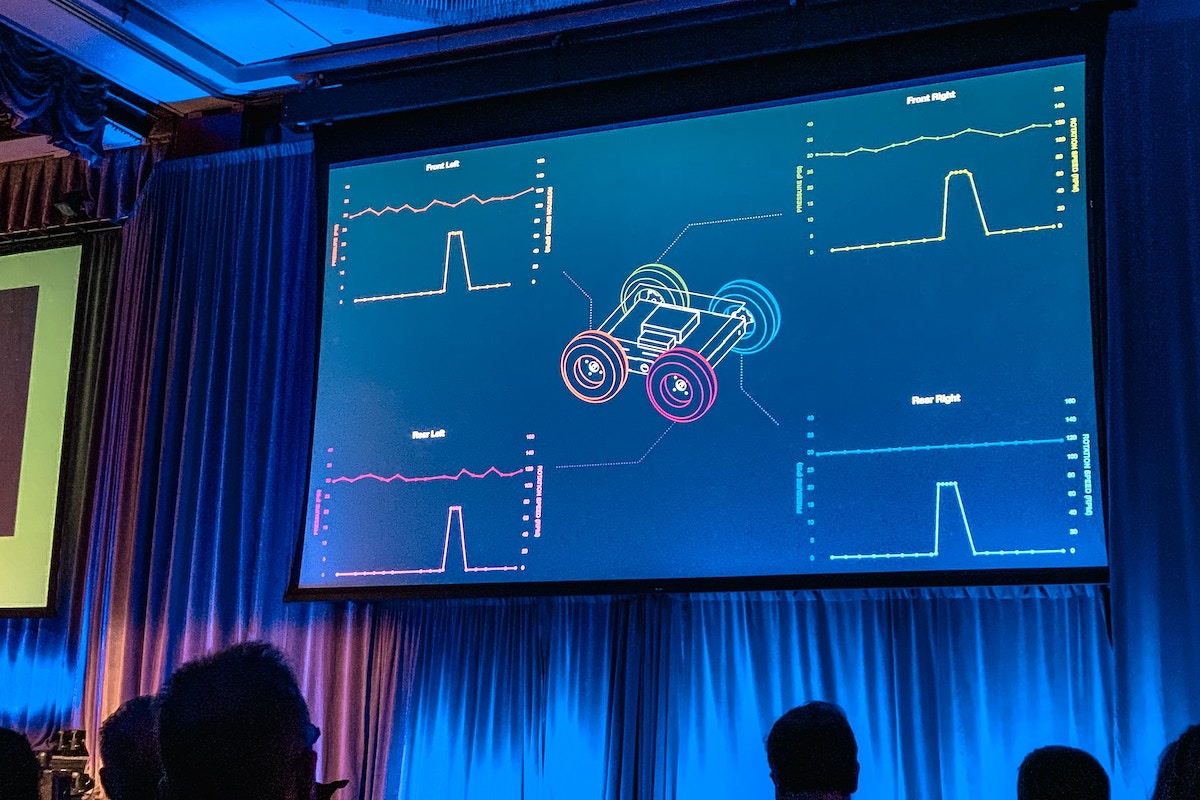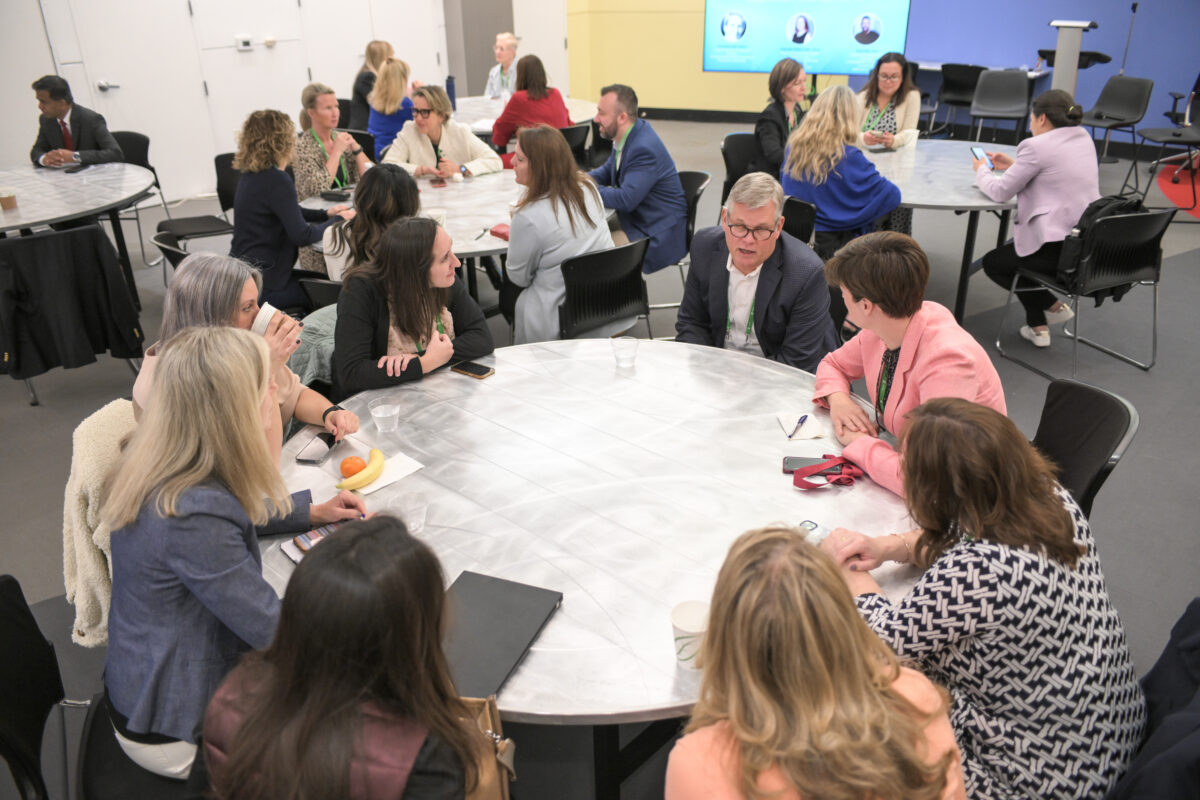Skift Take
For 15 years, this convention-organizing company has produced its own conferences alongside the core business of managing association events. CEO Ori Lahav projects these events will become Kenes' main revenue stream in just two years.
In a sector saturated with conferences, each clamoring for attention, carving out a unique space might seem like a daunting task. But Kenes is doing just that. Under the leadership of its CEO, Ori Lahav, the company has moved beyond the traditional Professional Congress Organizer (PCO) model of managing association events to pioneering its own specialized conferences in focused fields for the last 15 years.
Organizing its own events, which Kenes calls Original Events, was a natural progression from years of working with local ambassadors and partnering with a wide range of organizations to attract mainly medical events.
“[Kenes Founder] Gideon Rivlin was an entrepreneur. The company was actually founded through entrepreneurship spirit. When he was a local PCO, he went to the head of departments of universities of hospitals. And said, Why don’t we invite the international events to Israel,” Lahav recollected. “And this created a network of relationships with key opinion leaders in different specialties in the medical field.”
Success Stories
This network has enabled Kenes to venture into creating their own events. One of the ways they have done this is by taking previously rejected topics or unexplored concepts and turning them into thriving conferences.
One such success story was the Advanced Treatments and Technologies in Diabetes (ATTD) conference. “One of the congresses that we are running since 2007 was a topic that the professor we work with submitted to EASD, a big diabetes conference, that was rejected,” Lahav recalls. “We partnered together with two professors and created ATTD. The first event was about 700 people, and now it’s an annual meeting of over 4,000 people.”
Another noteworthy example is AD/PD™, a conference that explores the connection between Alzheimer’s and Parkinson’s. This meeting has become an annual gathering of top scientists in the respective fields. Lahav asserts that these are examples of Kenes creating events around topics not well-covered by other associations.
Strategic Business Thinking
Kenes’ strength lies not just in creating successful individual conferences but also in its strategic planning to ensure sustained growth. It aims to introduce between three to five new event brands every year. While the company’s core business remains in supporting association events, the vision is to reduce its dependency on association businesses. Lahav is confident that owned events will soon become the company’s largest revenue driver, perhaps in as little as two years.
Lahav is keen to clarify that the company’s owned events aren’t meant to compete with major associations. “We will never compete with our own clients or compete with a big association. But when we find an emerging topic that is not covered, and we find the right expert, we initiate,” said Lahav.
Kenes isn’t limited to the medical field. They’ve recently launched a non-medical event, the G4I World Congress, a government tech event created with the support of the Mayor of Madrid. Lahav believes that while medical events have been their core, the company is open to exploring any sector where it feels it can fill a market gap.
Taking Calculated Risks
Kenes’ ambition to turn owned events into their main revenue source is driven by mutual partnerships and an emphasis on calculated risk management. The company takes calculated business risks but uses its extensive event-organizing experience to secure the best deals with venues and suppliers. Lahav states, “We have venues that work with us and are willing to give us flexible terms when it comes to original events […] which reduces our risk.”
Despite their success, Lahav doesn’t intend to rest on Kenes’ laurels. When asked about unsuccessful ventures, Lahav maintains a pragmatic perspective, treating them as learning opportunities. “When we start, for us it’s like a startup incubator. We don’t know what will succeed, what will fail? Sometimes we’ll have to kill it before we start sometimes,” Lahav admits, adding that not every new brand may add to their portfolio, but they are prepared for that fact.
Another example is their medical cannabis congress, CannX, which didn’t pick up as expected and only lasted three editions. “The fact that I’m launching every year three to five new brands, doesn’t mean that I have three to five in addition every year,” Lahav clarified.
Playing to Its Strengths
Kenes strives to be more than just a faceless organizer in the background. They weave a relationship not only with their partners but also with their audience. “We also do their community management,” Lahav notes. “We are not the face […] we are the enablers.”
One of Kenes’ unique strengths is its geographic versatility and adaptability. Lahav explains, “We have a research team in-house that looks also at the geographical potential and the countries. Where is the support coming from? Where are the research hubs?”
In this manner, the company hedges its bets, making sure it’s well-positioned from every angle. And from these calculated risks, successes emerge. The International Conference on Lymphocyte Engineering (ICLE), now in its 4th edition was created in partnership with the Global Education of Medicine and Science (GEMS). “In the case of the Lymphocyte Engineering , we had a strong community in Germany. So, we went to Munich and they brought the community,” said Lahav.
With each event, Kenes expands its network and influence. It is ready to adapt and grow in the ever-changing landscape of professional knowledge exchange. In the world of conferences, Kenes is proving to be an event empire in the making. In light of their continued success, others are sure to soon follow.
Photo credit: Edgar / Unsplash





